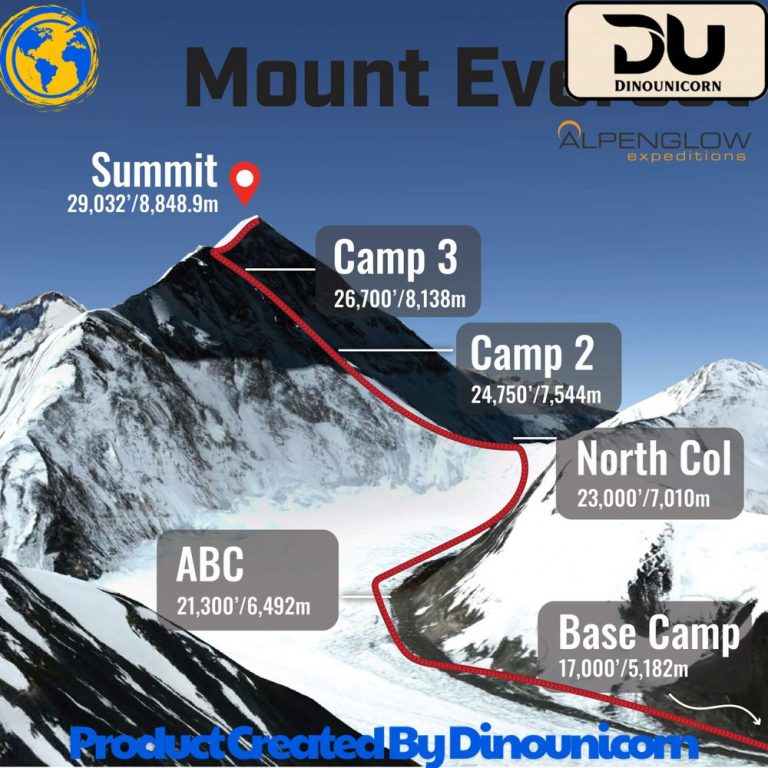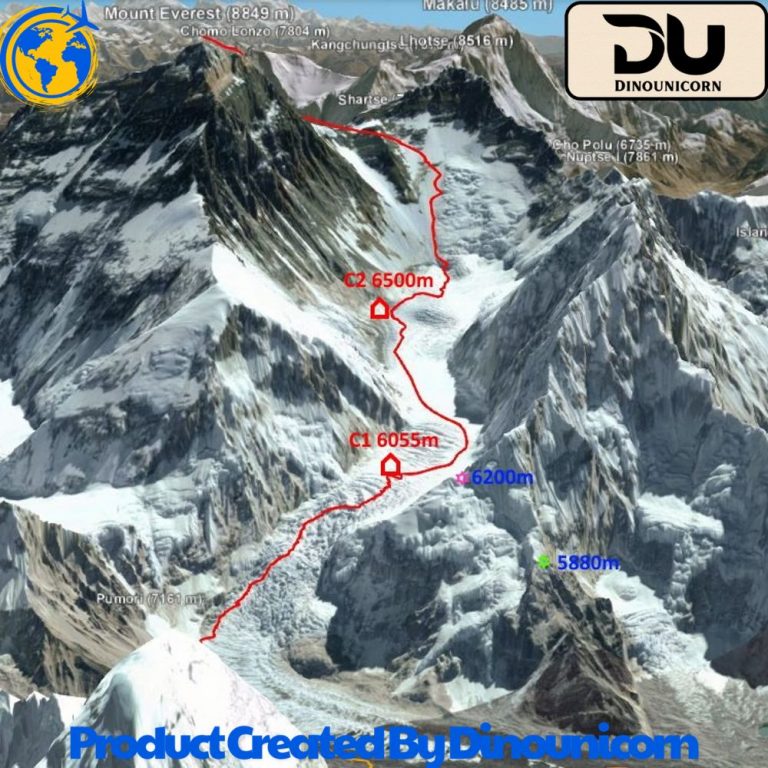Blog
How Long Does It Take to Climb Mount Everest?
How Long Does It Take to Climb Mount Everest?
Mount Everest, the tallest mountain on Earth, draws thousands of adventurous climbers each year. With its extreme challenges and awe-inspiring summit, many wonder, how long does it take to climb Mount Everest? The answer depends on various factors including weather, climber preparation, acclimatization, and the route chosen. In this article, we will explore the climbing Mount Everest duration, the Everest summit time, and other important details to understand what it takes to summit the world’s highest peak.
What Factors Affect the Time to Climb Mount Everest?
When it comes to climbing Mount Everest, several key factors influence the total duration of the expedition. The Everest expedition duration can vary based on weather conditions, acclimatization requirements, and the pace of the climbers. Additionally, climbers must plan for rest and recovery time at various camps on the route.
Weather and Environmental Factors
Mount Everest’s weather is highly unpredictable, and unfavorable conditions can significantly delay the expedition. Storms, heavy snow, and winds can halt progress, causing climbers to spend additional time at the base camp or higher camps.
Acclimatization Process
One of the most critical factors in how long does it take to climb Mount Everest is acclimatization. Due to the extreme altitude, climbers need to adjust to the lower oxygen levels. This process usually involves spending several days or even weeks at various camps to allow the body to adapt to the high altitudes.
Climbing Experience and Fitness
A climber’s fitness level and prior experience in high-altitude environments also impact the time required to reach the Everest summit. Athletes and experienced mountaineers may ascend faster than others, but it still takes around six to nine weeks to summit Everest safely.

Average Duration of the Everest Climb
How Long Does It Take to Climb Mount Everest?
In general, climbing Mount Everest takes between six and ten weeks, with most expeditions lasting around two to three months. This extended duration accounts for acclimatization, rest days, and time spent at Everest base camp.
Everest Climb Duration in Days
The Everest climb duration in days typically ranges from 60 to 70 days. Here’s a breakdown of the days involved:
- Base Camp Trek: The trek from Everest Base Camp to the higher camps takes around 10 to 14 days, depending on the pace.
- Acclimatization Stays: Climbers will spend several days at each camp (I, II, III, IV) to adjust to the thinning air.
- Summit Push: The final ascent from Camp IV to the summit usually takes 1-2 days, depending on the weather and climber health.
How Many Days Does It Take to Climb Mount Everest?
On average, it takes about two months to complete the full Mount Everest expedition. This includes time spent traveling to and from Nepal, preparing for the climb, trekking to base camp, and acclimatizing before making the final push to the summit.
The Phases of Climbing Mount Everest
Mount Everest Climbing Schedule
The Mount Everest climbing schedule is typically divided into several phases, starting with the base camp trek and progressing through each higher camp. The typical schedule looks like this:
- Base Camp Trek: The Everest Base Camp trek usually takes around 8-10 days. During this phase, climbers acclimatize while adjusting to the altitude.
- Climbing to Higher Camps: After setting up camp at Base Camp, climbers progress to Camp I, Camp II, Camp III, and Camp IV. Each camp is strategically placed to help climbers acclimatize and rest.
- Summit Push: After acclimatizing at the camps, climbers typically make their summit push in 1-2 days, depending on conditions. The climb is the most challenging part, taking climbers from Camp IV to the Everest summit.
Mount Everest Expedition Time
A typical Everest expedition takes around two months, which includes time spent traveling to the region, acclimatization, and preparation for the summit. The Mount Everest expedition time is not only about the ascent but also involves significant time spent waiting for favorable weather and resting to avoid altitude sickness.

How Long Does It Take to Reach the Summit of Everest?
Everest Summit Time
The time to reach Mount Everest peak varies depending on the weather and physical condition of the climbers. The Everest summit time typically takes 12 to 14 hours on summit day. Climbers leave Camp IV at night, hoping to reach the top early in the day to avoid dangerous weather conditions.
Time Needed for Mount Everest Ascent
The actual time required to ascend Mount Everest can vary, but it usually takes about 6 to 10 hours to climb from Camp IV to the summit. Climbers face extreme exhaustion and oxygen deprivation, making the final push particularly strenuous.
Mount Everest Journey Time: What to Expect
Total Everest Journey Time
The total Everest journey time includes the trek to base camp, acclimatization days, rest days, and the final ascent. On average, climbers will spend two to three months completing the entire journey. Some fast expeditions may complete the climb in six weeks, but this is rare and requires optimal conditions.
The Trekking Experience
The Everest base camp trek is a physically demanding journey that takes around 10 to 12 days. This part of the trek is not just about reaching Everest Base Camp, but also about acclimatizing to the higher altitudes.

Mount Everest Climb Timeline: A Day-by-Day Breakdown
Day 1-4: Arrival and Base Camp Setup
The first days of the climb are spent trekking to Everest Base Camp. This trek typically takes about 8-10 days from Lukla. Climbers will rest at base camp and begin their acclimatization process, gradually adjusting to the high altitude.
Day 5-10: Acclimatization at Higher Camps
Climbers spend several days at Camp I, Camp II, and Camp III to acclimatize. This process can take anywhere from 10-14 days, depending on the weather and the individual’s ability to adjust.
Day 11-14: The Final Ascent
The final climb from Camp IV to the summit takes 1-2 days, depending on the weather conditions and the climber’s physical state.
Everest Climbing and Trekking Tips
How Long Does the Everest Expedition Take on Average?
As discussed, an Everest expedition typically takes about two months. However, it’s important to be prepared for unforeseen delays due to weather conditions or other factors. Be sure to account for extra time when planning your trip.
Key Tips for Planning an Everest Climb
- Physical Preparation: Ensure you are physically fit and capable of handling high-altitude climbs.
- Acclimatization: Spend enough time acclimatizing at each camp to avoid altitude sickness.
- Experienced Sherpas: Hire Sherpas for assistance in navigating the climb and carrying equipment.
- Weather Monitoring: Pay close attention to weather reports and feedback from other climbers for safe ascent conditions.
Frequently Asked Questions (FAQs)
How long does it take to climb Mount Everest?
Answer: It typically takes around two to three months to climb Mount Everest, including trekking, acclimatization, and the final summit ascent.
How many days does it take to reach the summit of Everest?
Answer: It takes 12 to 14 hours to summit Everest from Camp IV, but climbers will spend around two months on the entire expedition.
What factors affect the time it takes to climb Everest?
Answer: Weather conditions, acclimatization, and physical fitness play significant roles in determining how long it takes to climb Mount Everest.
Is it possible to climb Mount Everest in less time?
Answer: While it’s rare, some fast expeditions may complete the Everest climb in six weeks, but this requires optimal weather and excellent physical conditioning.
What is the best time to climb Mount Everest?
Answer: The best times to climb Everest are typically in April-May and September-October, when the weather is more stable.
Conclusion: How Long Does It Take to Climb Mount Everest?
To summit Mount Everest, climbers need to be prepared for a journey that spans two to three months. From the base camp trek to the final ascent, the time required to climb Mount Everest varies based on factors such as acclimatization, weather, and the climber’s fitness. It’s crucial to approach the climb with patience, preparation, and the support of experienced guides. Whether you are looking to understand the Everest expedition length or plan your own Everest climbing period, this expedition will test your endurance and determination in ways few other challenges can.
 Skip to content
Skip to content

